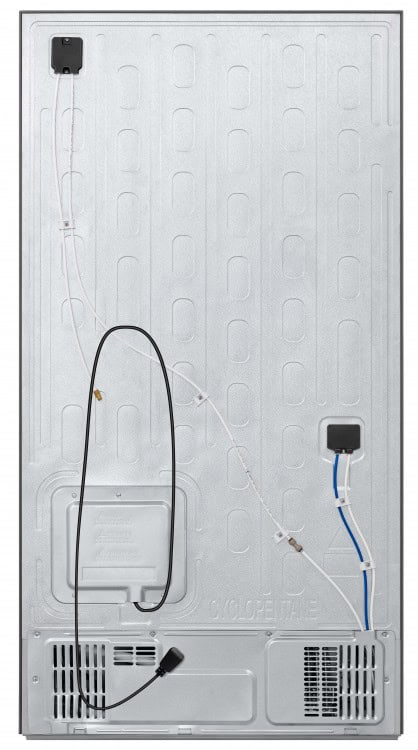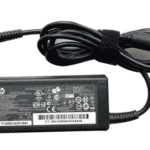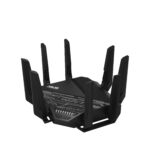Freezer frost is a common issue that can affect any refrigerator. By understanding its causes and taking preventive measures, you can keep your freezer running efficiently and avoid the hassle of dealing with icy coils. When ice begins to accumulate on the evaporator coils, it can lead to serious problems. This buildup not only reduces the appliance’s efficiency but can also result in higher energy costs and potential food waste.
The evaporator coils are essential components of the refrigeration system; they absorb heat from inside the fridge to cool the air. When these coils freeze over, they can no longer function properly. Several factors can cause this to happen, such as a faulty defrost system or a damaged door seal. It is crucial to identify and address the root cause to maintain your refrigerator’s performance and longevity.
How to Prevent and Fix Refrigerator Freezer Coil Frost
A frosty buildup on your refrigerator freezer coils can hinder its efficiency and lead to higher energy bills. Understanding why frost occurs and knowing how to prevent and fix it can save you time, money, and frustration.
Why Do Freezer Coils Frost Up?
Frost forms when warm, moist air enters the freezer and comes into contact with the cold coils. This moisture condenses and freezes. Here are some common culprits:
- Frequent Door Openings: Every time you open the freezer door, warm air rushes in.
- Overpacking: Overcrowding the freezer restricts airflow, making it harder for the refrigerator to maintain the proper temperature.
- Damaged Door Seals: Worn-out or damaged door seals allow warm air to seep into the freezer.
- Defective Defrost System: A malfunctioning defrost timer, heater, or thermostat can disrupt the automatic defrost cycle.
Preventing Freezer Coil Frost
- Limit Door Openings: Open the freezer door only when necessary and close it quickly.
- Don’t Overpack: Ensure proper airflow by leaving some space between items.
- Maintain Door Seals: Regularly inspect and clean the door seals. Replace them if they’re damaged or cracked.
- Proper Temperature Setting: Set the freezer temperature to the manufacturer’s recommended setting (usually 0°F or -18°C).
Fixing Frosted Freezer Coils
If your freezer coils are already frosted over, here’s how to address it:
- Unplug the Refrigerator: Safety first! Disconnect the refrigerator from the power outlet.
- Remove Food and Ice: Empty the freezer, including any ice buildup.
- Melt the Frost: You can speed up the melting process by placing bowls of hot water in the freezer or using a hairdryer on a low setting. Caution: Never use sharp objects to chip away ice, as this could damage the coils.
- Dry Thoroughly: Once the frost has melted, dry the freezer interior completely with a towel.
- Check for Underlying Issues: Inspect the door seals and ensure they are sealing properly. If you suspect a problem with the defrost system, consult a qualified appliance repair technician.
- Plug the Refrigerator Back In: Once everything is dry and you’ve addressed any potential issues, plug the refrigerator back in.
Maintaining a Frost-Free Freezer
- Regular Defrosting: Even with automatic defrost, it’s a good idea to manually defrost your freezer once or twice a year to prevent excessive frost buildup.
- Clean the Condenser Coils: Dust and debris on the condenser coils (located at the back or bottom of the refrigerator) can also affect efficiency. Clean them regularly with a vacuum cleaner or brush.
Key Takeaways
- Frozen evaporator coils can significantly impact refrigerator efficiency
- Several factors can cause coils to freeze, including faulty parts and user habits
- Regular maintenance and prompt repairs help prevent ice buildup and extend appliance life
Evaporator Coils: Key Players in Refrigeration
Evaporator coils play a crucial role in keeping refrigerators cold. These components absorb heat from inside the appliance, maintaining food at safe temperatures. As refrigerant flows through the coils, it changes from liquid to gas, pulling heat from the surroundings. This process is essential for effective cooling.
Frozen evaporator coils can hinder a refrigerator’s performance. Regular maintenance helps prevent this issue and keeps the system running smoothly. Proper airflow around the coils is vital for optimal functioning.
Importance of Evaporator Coils in Refrigeration
Evaporator coils play a crucial role in refrigerator performance. These components maintain consistent temperatures, which is essential for food quality and safety. When coils function properly, they regulate cold air flow and manage humidity levels effectively.
Problems with evaporator coils can lead to:
- Uneven cooling
- Frost accumulation
- Increased energy consumption
Freezing of coils is a common issue that affects refrigerator efficiency. Regular maintenance helps prevent these problems and ensures optimal performance.
Why Freezer Coils Freeze Over
Restricted Air Circulation
When a freezer lacks proper airflow, it can lead to frozen coils. Overstuffed freezers often block vents, causing cold air to stagnate. This creates cold spots where frost forms easily. Proper spacing between items is key for good air movement.
- Keep vents clear
- Don’t overpack shelves
- Clean fan blades regularly
Faulty Defrosting Mechanisms
A freezer’s defrost system plays a crucial role in preventing ice buildup. When this system fails, frost accumulates quickly on the coils. The defrost timer controls the defrost cycle. If it malfunctions, the coils stay cold too long.
Components that may cause issues:
- Defrost heater
- Defrost thermostat
- Timer
Inaccurate Temperature Control
When a freezer’s thermostat gives wrong readings, it can lead to overcooling. This makes coils freeze up fast. Calibrating the thermostat correctly is vital for maintaining the right temperature. If it’s off even by a few degrees, ice can form quickly.
Tips for checking thermostat accuracy:
- Use a separate thermometer
- Compare readings at different times
- Adjust settings if needed
Identifying Frozen Coils: Key Indicators
Temperature Fluctuations
Uneven cooling in different parts of the refrigerator can signal frozen coils. Some areas may feel colder than others. This can lead to food spoilage in warmer spots. Check for consistent temperatures throughout the fridge.
Ice Formation
Visible ice or frost inside the refrigerator or freezer is a clear sign of frozen coils. This frost buildup can block vents and reduce cooling efficiency. Look for ice on walls, shelves, or around food items.
Strange Sounds
Unusual noises from the refrigerator may indicate frozen coils. Listen for:
- Constant humming
- Loud buzzing
- Clicking sounds
These noises often result from the cooling system working harder than normal to maintain temperature.
Tackling Icy Coils: Solutions for Frozen Refrigerators
Frozen coils in refrigerators can cause significant issues. Regular checks help spot ice buildup early. If the automatic defrost fails, manual defrosting may be necessary. Turn off the fridge and let it thaw naturally.
Inspect the defrost system components:
- Heater
- Timer
- Multimeter for testing
A working defrost system is crucial. If parts are faulty, professional repair is needed.
Proper airflow prevents future freezing:
- Clear vents
- Check fan operation
- Ensure proper spacing around the fridge
Safety is key when addressing frozen coils:
• Unplug the refrigerator before any work
• Avoid using sharp tools on coils
• Wear gloves to protect hands from ice
Regular maintenance keeps refrigerators running smoothly. Clean coils and check seals every few months. This helps prevent frost buildup and ensures efficient cooling.
Keeping Ice at Bay: Proactive Steps
Regular Upkeep
Frequent cleaning is key to a frost-free freezer. Wipe down surfaces and check the door seal often. A simple test: close the door on a dollar bill. If it slides out easily, the seal may need replacement. Clean coils boost efficiency and prevent ice buildup.
Proper Positioning
Freezers need space to function well. Leave a few inches around the unit for air circulation. This helps maintain optimal temperature and reduces frost formation. Good airflow is crucial for preventing excessive ice.
Smart Storage
Arrange items wisely in your freezer. Don’t overpack – this can block vents and disrupt airflow. Cool items before freezing to reduce moisture. Use airtight containers to limit humidity. These steps help maintain consistent temperatures and minimize frost.
Keeping Your Fridge Running Smoothly
Regular maintenance keeps refrigerators working efficiently. Check the evaporator coils monthly for frost buildup. Clean the condenser coils twice a year. Replace door seals if they’re worn or damaged. Set the temperature between 35-38°F for the fridge and 0-5°F for the freezer. These simple steps help prevent issues and extend your appliance’s lifespan.
Make sure to clean the defrost drain periodically. This prevents clogs that can lead to water leaks. Keep an eye on the defrost timer and thermostat. If they malfunction, frost can accumulate quickly on the coils.







